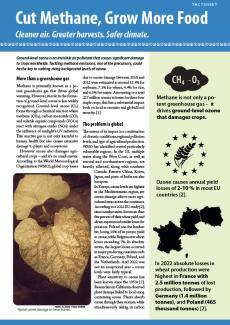Our work
Latest from Acid News
Air Convention advances Gothenburg Protocol revision
Parties agreed on frameworks to halve health and ecosystem impacts by 2040, but static population assumptions could limit ambition, particularly for the EU.Editorial: We keep going
Over the past year, AirClim has been forced to make difficult organisational decisions. We have reduced our staff from four to two and closed our office in Gothenburg.
First global summit on transition away from fossil fuels in spring 2026
As COP30 moved toward its conclusion without any reference to fossil fuels in the latest draft text, Colombia and the Netherlands announced that they will co-host the first International Conference on the Just Transition Away from Fossil Fuels.EU Clean air policies deliver benefits four times greater than their costs
A new evaluation of the EU’s National Emission Reduction Commitments (NEC) Directive shows that the clean air policies are delivering significant results, but several Member States remain off track to meet their 2030 targets.Over 180,000 EU deaths linked to air pollution in 2023
More than 180,000 deaths in the EU in 2023 were attributable to fine particulate matter (PM2.5) levels above World Health Organization (WHO) guidelines, according to a new assessment from the European Environment Agency (EEA).
The state of EU shore power infrastructure
Shipping activity is most heavily concentrated in ports, and so are its pollution and emissions. Over 6% of Europe’s maritime GHG emissions occur during port operations, alongside high levels of air pollutants such as sulphur dioxide (SO2) and particulate matter (PM2.5). Cutting these emissions is critical to improving urban air quality and protecting public health.

Court ruling: Rome must pay residents for traffic noise and pollution
Italy’s highest court has confirmed that the City of Rome must compensate residents living near the busy Tangenziale Est motorway for years of excessive noise and air pollution.
European Maritime Transport Environmental Report
The 2025 European Maritime Transport Environmental Report (EMTER) provides an updated assessment of the environmental impact of the maritime sector in the EU.
Ports and airports are potential air pollution hot spots
Shipping is projected to become the main source of transport-related air pollution in coastal cities by 2030, according to the EEA briefing “Air quality around ports and airports.”
New Factsheet: Ozone and crops
Ground-level ozone is an invisible air pollutant that causes significant damage to crops worldwide. Tackling methane emissions, one of the precursors, could be the key to curbing rising background levels of ozone.
Keep track of Methane Regulation
In November 2023, European Union (EU) policymakers agreed on new legislation to reduce methane emissions from the energy sector.
Latest Publications














